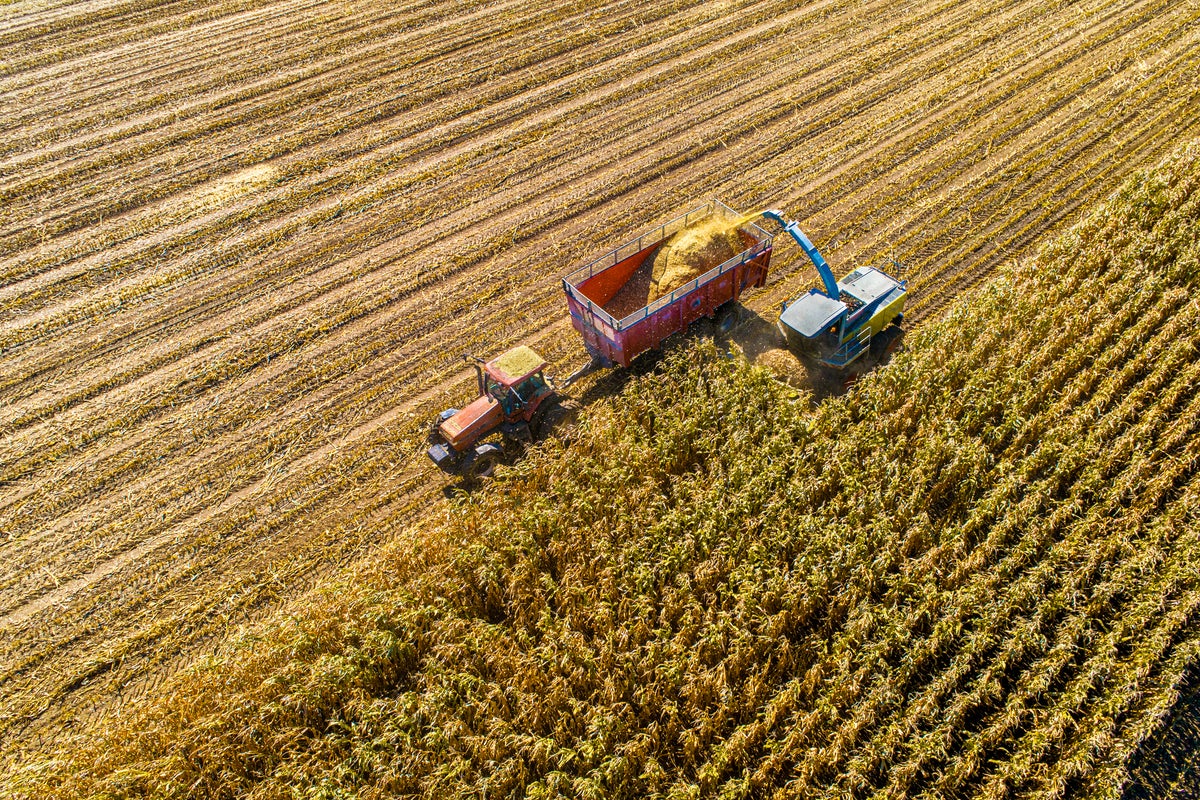
President Donald Trump is expected to unveil another round of economic support for American farmers imminently, a move deemed necessary due to his tariff aggressions against China.
“I’m going to do some farm stuff this week,” Trump said at the White House on Monday, declining to go into specifics.
As was the case in 2018 during his first term, Beijing has responded to the president’s attempts to reset the balance of global trade by drastically scaling back purchases of U.S. farm products, taking its business elsewhere in protest at steep levies being imposed on its own exports.
That has placed huge pressure on America’s agricultural sector, which has in turn been compounded by Trump’s trade strategy driving up the cost of imported fertilizer and heavy machinery.
“We have an export-dependent industry, we’ve angered its biggest customer, and, boom, now we’re bailing out the export-dependent industry,” Scott Lincicome, the vice president for general economics at the libertarian think-tank the Cato Institute, told The New York Times. “It’s kind of a slow-motion train wreck six years in the making.”
During Trump’s first term, China responded to his trade aggressions by imposing steep import taxes on U.S. products like whiskey, cranberries, pork and soybeans, hitting the sector so hard that the administration was forced to initiate a $20 billion bailout to help a demographic Trump has relied upon for votes.
This time around, Republican lawmakers have estimated the cost could be closer to $50 billion, according to the NYT.
Where that money will come from is uncertain, given that the Department of Agriculture’s Commodity Credit Corporation, used last time, is currently depleted. Trump said at the White House last month that revenue generated from his tariffs could be poured straight back into the sector they are most obviously hurting.
With China importing crops from Argentina and Brazil instead, the administration is under steadily growing pressure to reverse course but has insisted the tariff strategy is necessary.
Treasury Secretary Scott Bessent, who reportedly owns thousands of acres of farmland devoted to soybean cultivation himself in North Dakota, has blamed the Joe Biden administration for the crisis, telling CNBC last week that China’s “feet were not held to the fire” over agriculture prices on the Democrat’s watch.
“It’s unfortunate that Chinese leadership has decided to use the American farmers, soybean farmers in particular, as a hostage or pawn in the trade negotiations,” Bessent said.
The 2018 trade spat between the U.S. and China ended with a new deal being signed compelling Beijing to buy up an additional $200bn of American farm goods over a two-year period, although it only met 83 percent of that commitment’s total, according to the Peterson Institute for International Economics.
It did nevertheless continue to trade with the U.S. on comparatively friendly terms throughout the Biden-era, with the relationship only hitting the rocks again once Trump returned to power this year. He initially imposed 100 percent tariffs on the rival superpower, before lowering them to 30 percent, but not without inviting costly retaliation.
Bessent is currently leading negotiations with China, which has reportedly offered to resume purchasing U.S. soybeans (which it stopped doing entirely in May) in exchange for Trump dropping his levy. Without a deal, the loss of Chinese custom means soybeans alone will account for a $10 billion hole in America’s finances for this calendar year.
Other pressures, including a glut of global corn supplies and the increased use of synthetic fibres in clothing hitting cotton, mean the U.S. agricultural sector finds itself in dire straits.
“We definitely need some type of aid,” Kansas arable farmer Andy Hineman told the NYT. “I’ll be the first one, if they hand out money, I’ll take it and gladly use it in our operation.”
